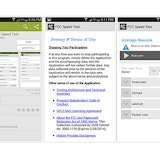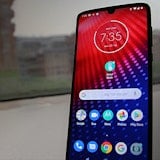
Good news everyone: the five biggest US wireless carriers have agreed to bow to public, White House and FCC pressure and adopt a universal and simple phone unlocking policy.
After months of negotiating, Verizon Wireless, Sprint, AT&T, T-Mobile and US Cellular have all committed to following the new CTIA ‘voluntary industry principles’ to allow their customers to unlock cell phones and tablets upon request.
It’s great news for customers frustrated by the previous stance of carriers (and the needlessly complicated unlocking process), which often saw users having to purchase a new device in order to access a new carrier’s network, rather than being able to bring their old phone or tablet across from another carrier.
The six new recommended industry principles are:
- Disclosure: Carriers will be required to clearly explain their device unlocking policy on their websites.
- Postpaid Unlocking Policy: Carriers must unlock a customer’s postpaid phone if requested, provided that customer’s two-year service plan or device financing plan has been fulfilled, or the customer is willing to pay any applicable early termination fees.
- Prepaid Unlocking Policy: Carriers must unlock a customer’s prepaid phone if requested, and no later than one year after activation.
- Notice: Carriers must notify customers when their device is eligible to be unlocked. Carriers will also be permitted to charge a fee to non-customers requested their device unlocked.
- Response Time: Carriers must unlock a device within two business days of a customer’s request, or provide an explanation as to why the device does not qualify for unlocking or cannot be unlocked in that time frame.
- Deployed Personnel Unlocking Policy: Carriers must unlock the phones of deployed military personnel upon provision of deployment papers, provided the customer is in good standing.
Customers shouldn't expect change overnight, however, as the updated principles are expected to take over a year to be put into action.
Although the CTIA and the agreeing carriers have recommended the industry principles be added into the CTIA consumer code for wireless services, this could take several months to complete.
Once the code has been amended to reflect the new rules, the five carriers will be required to implement three of the six principles within three months. Carriers will then have a further nine months to introduce the remaining principles. The CTIA will leave it up to each carrier to decide in which order the principles will be applied.
The agreement comes just in time, after the FCC threatened to issue its own rules on cell phone unlocking if the industry could not make a decision by the end of 2013.
Unlocking has been a major agenda for the FCC in recent months, after a ruling earlier in the year by the Library of Congress deemed unlocking ‘illegal’ - much to the outrage of the smartphone-owning public.
Despite the new rules being a win for customers, being able to unlock your phone won’t guarantee that the device will work perfectly on all US networks. The often incompatible frequencies and technologies used by the various major carriers means some handsets and tablets won’t be supported on all wireless services.
Image credit: Chris Guy at Flickr
Related Articles
Find Better Phones and Plans
Hundreds of cell phone plans unpacked. All the facts. No surprises.



































